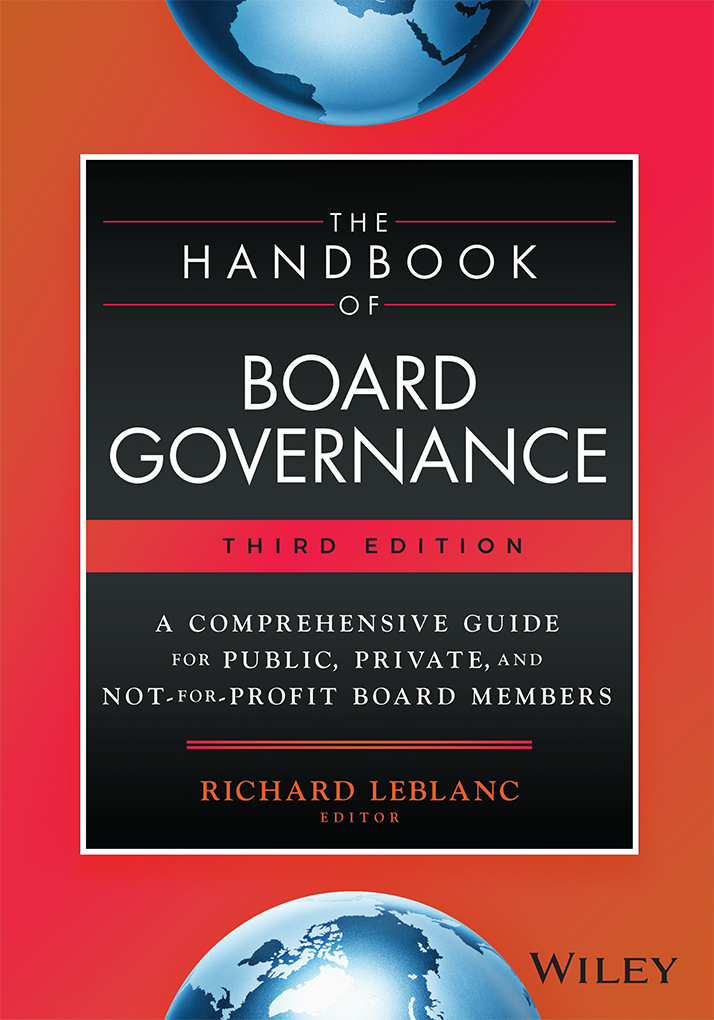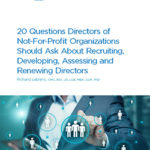Here is my letter to the Canadian Securities Administrators on the potential regulation of Proxy Advisors:
Should Proxy Advisory Firms Be Regulated? Yes.
I am drawing on my own research as well as materials I consulted recently in designing and delivering a new course at Harvard University, including teaching materials provided to me by Stanford University researchers (Larcker and Tayan).
The Canadian Securities Administrators has asked whether proxy advisory firms should be regulated. (Proxy advisory firms, such as Institutional Shareholder Services and Glass Lewis, which is owned by Ontario Teachers Pension Plan, provide governance assessment and recommendations to institutional shareholders on their voting at annual meetings of companies.)
In my view, proxy advisory firms should be regulated for three important reasons.
Conflicts of Interest
Proxy advisory firms also provide consulting services to companies to improve their governance score. This would be analogous to me as a teacher providing tutorial services for money for students to improve their grade. Or credit rating agencies receiving fees for other services other than an independent rating of the creditworthiness of the company. The business model for proxy advisory firms needs to change such that there is no non-rating services offered by them. Similar to auditors being restricted only to the audit (S-Ox), and compensation consultants now being restricted only to compensation assurance services to the board (Dodd-Frank), this practice needs to broaden such that any firm or individual providing independent assurance of governance (including governance advisory and search firms) should not have a consulting revenue stream, and should not provide any services to management or the company other than the assurance service provided to – or in respect of – the board or committee.
Having an alternate revenue stream to the provision of governance assurance services undermines the independence and objectivity of the assessment as the assurance provider is assessing his or her own work, or that of his or her colleagues within a firm. Moreover, a commercial conflict of this nature undermines the appearance and confidence in the marketplace that the assurance provider is not unduly influenced by proprietary or commercial interests. Having firewalls or separate business units within a firm does not address the reasonable perception of conflict, nor provide adequate safeguards given non-financial and personal/career influence.
Lack of Qualitative Assessment of Governance Quality and Predictive Validity on Shareholder Value
Second, based on my review, there is limited peer-reviewed evidence at best that proxy advisory firms measure governance quality in the main, or that which they do measure predicts shareholder value. These commercial firms possess a business model predicated on volume-based, externally measureable metrics. What is measureable, such as structural independence governance variables, such as independent chairs and directors, independent committees, share ownership, etc., do not necessarily impact board effectiveness or shareholder performance.
The above quantitative Stanford researchers actually go so far as to suggest “no evidence” (at page 161 of their book) for certain of these variables. Other variables offer “mixed” or “modest” evidence, while others (such as busy or interlocked boards) offer more persuasive evidence. Indeed the academic research also has not found a systemic relationship between governance rating systems (including G and I Indexes) and the predicting of long-term shareholder performance. Indexes based on entrenchment and anti-takeover provisions arguably do not measure board effectiveness.
Unfortunately, given the above lack of predictive validity, companies change certain governance practices to improve their scores when there may be limited empirical evidence that the purported practice will have impact on board effectiveness or firm performance. This pressure to change should not be the case.
What are relevant – so far as board effectiveness is concerned – are qualitative factors such as director qualifications (competencies and skills), engagement, leadership and board dynamics. These factors are more difficult, and in some cases not possible, to measure from outside a boardroom. I note the inconsistencies in proxy advisory firms’ ratings where the same company received divergent ratings from different proxy advisor firms, or companies that experienced governance failure formerly received high ratings (and in a few cases, awards from shareholder or other groups) from proxy advisory firms.
Proxy advisory firms, if they are purporting to measure governance quality, (i) should be required to assess and incorporate qualitative and firm-specific factors into their ratings and recommendations, (ii) should have the expertise and resources to do so, and (iii) should have a process for independent review, audit, contestation and arbitration if necessary. The personnel and sources consulted to produce a proxy advisory report should also be disclosed. See the paper by Leblanc et al., here and search “The Governance of Proxy Advisors.”[1]
Lack of Transparency
Third, the transparency of proxy firms should be increased. Proxy advisory firms’ rating methodologies and weightings accorded to various factors are divergent. If they were measuring governance quality with rigor, we would expect to see convergence, such is the case with credit rating agencies. Not surprisingly, individual companies may receive different ratings depending on the proxy advisory firm. This inconsistency needs to be addressed.
Governance ratings according to Stanford researchers who study them were found to have little predictive validity among the ratings of any of the three proxy advisory firms examined. The authors go on to write (Larcker and Tayan, 2011, p. 446-447), “the study found low correlation among the ratings of the three firms, low correlation between the ratings of each firm and future performance, and low correlation between the ratings of Risk Metrics/ISS and the proxy recommendations of Risk Metrics/ISS. The authors concluded that “these governance ratings have either limited or no success in predicting firm performance or other outcomes of interest to shareholders. … Our view is that … the commercial ratings contain a large amount of measurement error. … These results suggest that boards of directors should not implement governance changes solely for the purpose of increasing their rankings.” [footnote omitted].
The use of and reliance upon ratings and proxy advisory services by institutional shareholders should also be transparent and accessible on the institutional shareholder website. (See the above paper by Leblanc et al..)
Conclusion
Boards of directors criticize proxy advisory firms for their ‘check the box’ and ‘one sized fits all’ approach to corporate governance; the enormous influence that they have; and their lack of transparency and accountability – in the governance field – when these firms and shareholders they serve insist on transparency and accountability from others. It seems to me that there is merit in concerns that boards have. More importantly however, the empirical evidence does not support many of the metrics being used by these firms, and ignores or diminishes others.
I hope this commentary is useful to your review.
Sincerely,
Richard W. Leblanc, PhD
[1] Leblanc, Richard, et al., “General Commentary on European Union Corporate Governance Proposals,’” International Journal of Disclosure and Governance (2012) 9:1, 1-35, where transparency, influence, inaccuracy, consulting services, institutional investor regulation and increased competition are discussed in greater depth. See online version here: http://www.palgrave-journals.com/jdg/journal/v9/n1/full/jdg201124a.html
Posted by Richard Leblanc on Aug 25, 2012 at 5:12 pm in Board and Committee Leadership, Shareholder Accountability |












